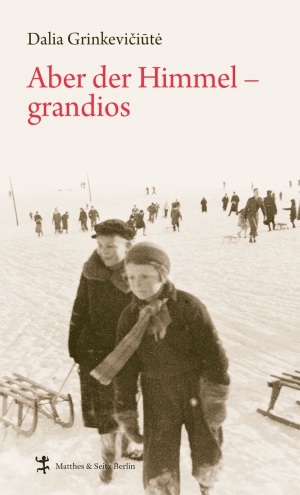Dalia Grinkevičiūtė was deported at the age of fourteen in 1941 by the Soviets along with her mother, brother and thousands of other Lithuanians to the Siberian Arctic. A place historians have come to call the “special settlements“ —islands of misery to which Stalin deported mostly women and children (the men having already been sent to concentration camps).This book is her legacy. She wrote it on her first escape at the age of 22 and kept it in a box, which she buried fearing the KGB might read it. A few months later she got caught again. In 1991, four years after her death, her memoirs were found and were celebrated like a miracle by a national event.
Sample translation
English translation and Lithuanian original text available
Dalia Grinkevičiūtė (1927-1987) spent her teenage years in a Siberian gulag. At 21 she escaped, only to be deported to Siberia once again in 1951.
“Dalia Grinkevičiūtė develops through the destruction of her humanity according to the soviet plan an incredible force of language one can‘t escape. It is not the pathetic story of a hero but the story of a constant indignation and self-assertation, a literary document like they are only a few of them.“
Regina Mönch, Frankfurter Allgemeine Zeitung
‘Dalia’s suffering is so breathlessly cruel that the Gulag may have been plucked from some dark early century, but her voice – angry, sulky, sarcastic – brings it hurrying into the present.’ Julie McDowall, TLS







